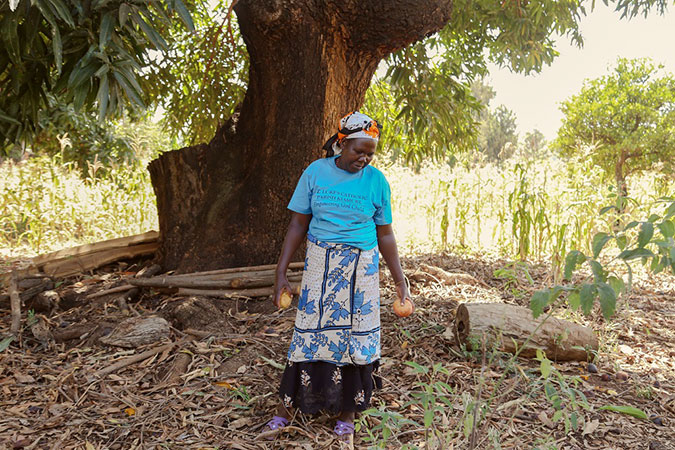Empower Women and Girls in Rural Areas to Achieve the SDGs and Africa’s Agenda 2063
Date:
This year’s CSW62 Priority Theme: “Challenges and Opportunities in achieving gender equality and the empowerment of rural women and girls” is critical to the attainment of the SDGs Agenda 2030 and Africa’s Agenda 2063. This is according to the Africa’s pre CSW62 consultations held in Addis Ababa in February 2018. CSW62 theme strengthens the African Union’s Constitutive Act which commit Africa to promote gender equality and the empowerment of women and girls as a pre-condition, without which the continent’s development goals and aspirations cannot and will not be realized.
Women make up more than 50% of Africa’s population and 80% of them reside in rural areas. Over 60% are employment in rural areas in the agriculture sector. The CSW62 theme therefore provides a good opportunity to identify ways and means to empower women and girls living in rural areas particularly when one considers that rural areas are the backbone of African economies.
Participants noted that rural communities particularly women in Africa are endowed with natural resources, however they are under resourced in addition to the fact that women and girls living in rural areas face differing realities and challenges across the continent. Most of these challenges are directly linked to gender inequality and structural barriers, including women’s unequal access to power and resources which disadvantages and discriminates against women and girls living in rural areas. They called on all players to address the limited access to quality social services, infrastructure, energy and labor saving technology, coupled with the reproductive role of women which increases the burden of care on women and girls.
Unfortunately, Africa will not realize its potential if women and girls living in rural Africa continue to face structural barriers to the full enjoyment of their human rights, which are often inadequately or insufficiently addressed in laws, policies, budgets, investments, and interventions at all levels across the continent.
“These barriers are compounded when women are excluded from leadership, and decision making leading to underrepresentation in local and national institutions and governance mechanisms, which leads to their diminished voice, agency and decision-making power. Other challenges facing African women living in rural include sexual and gender based violence, high prevalence of maternal mortality, HIV and AIDs, child marriage, FGM, conflict and natural disasters. All these must be urgently addressed for Africa to realize its development aspirations,”commented Ms. Diana Ofwona the UN Women Regional Director for West and Central Africa.
The participants also called on the Commission on the Status of Women at its 62nd Session to note that, it is not the women who are rural, but that it is the context and environment within which the women and girls derive their livelihoods and experience which is rural. Hence, we call for focus to be on interventions that change those contexts and environments for the benefit of the women and girls.

Lastly the participants were keen on how to ensure effective implementation, monitoring and reporting of the Commission’s recommendations, including priority actions to advance the gender equality priorities of Agenda 2030 and Agenda 2063 by the African Union.
The Africa Ministerial Pre-Consultation on the Commission on the Status of Women 62nd Session was jointly organized by the African Union Commission (AUC), United Nations Entity for Gender Equality and the Empowerment of Women (UN Women), the Economic Commission for Africa (ECA) and United Nations Development Programme (UNDP).
The Regional Consultative meeting provided the Member States with the opportunity to agree on a strategy for effective collaboration and linkages with the Africa Group in New York to ensure an AU Member States Common Africa position. The meeting drew from deliberations by member states through national consultation meetings that engaged various stakeholders including local communities especially women and girls living in rural areas to ensure that their needs, challenges and opportunities inform Africa’s common position of the CSW62.